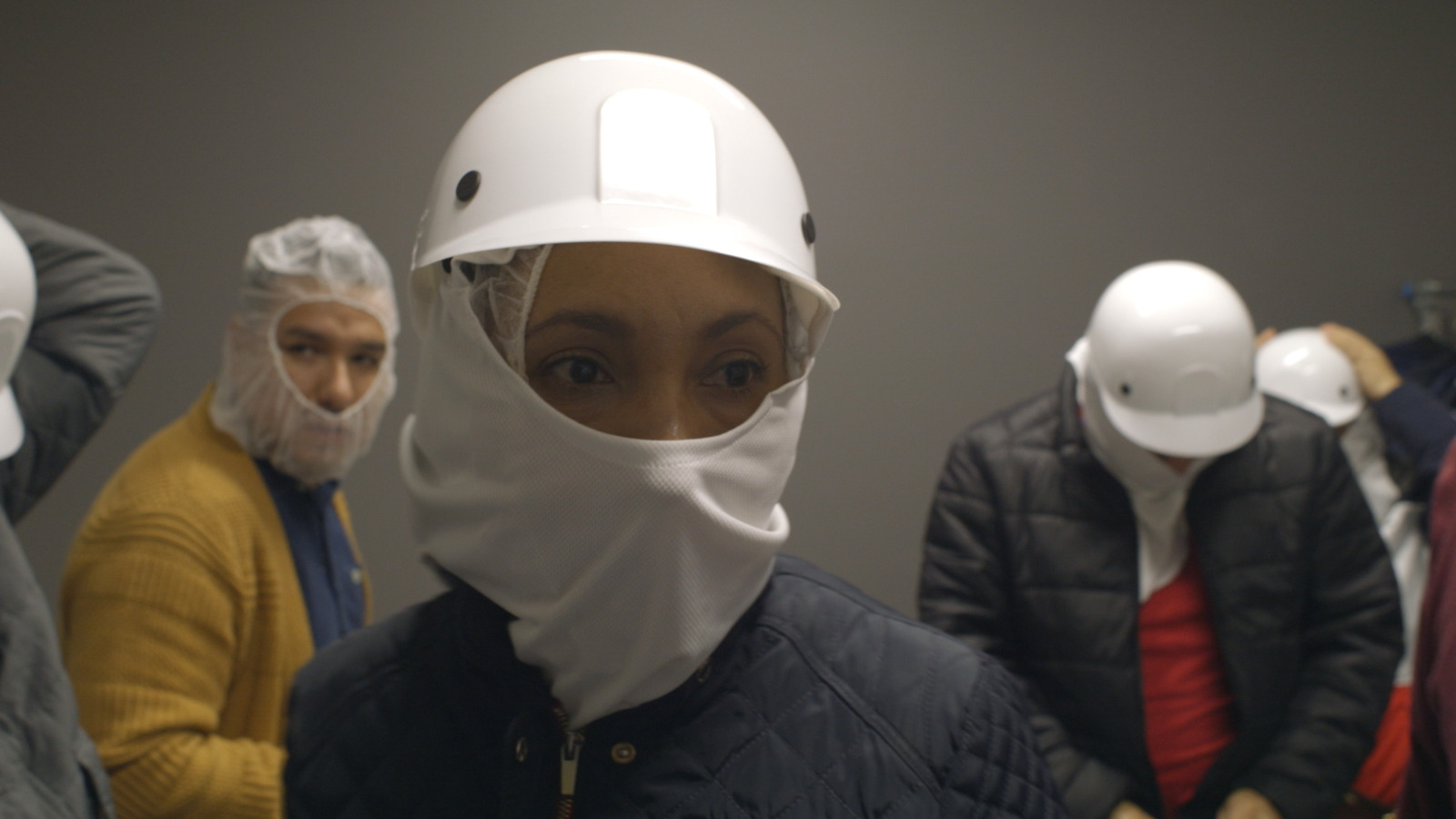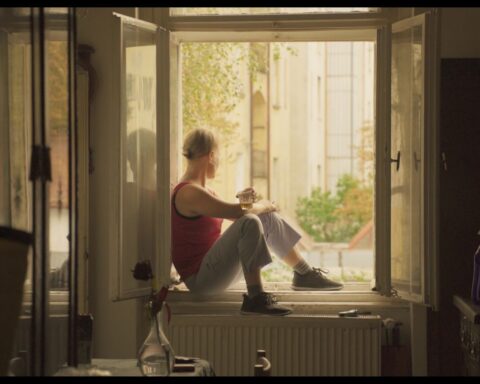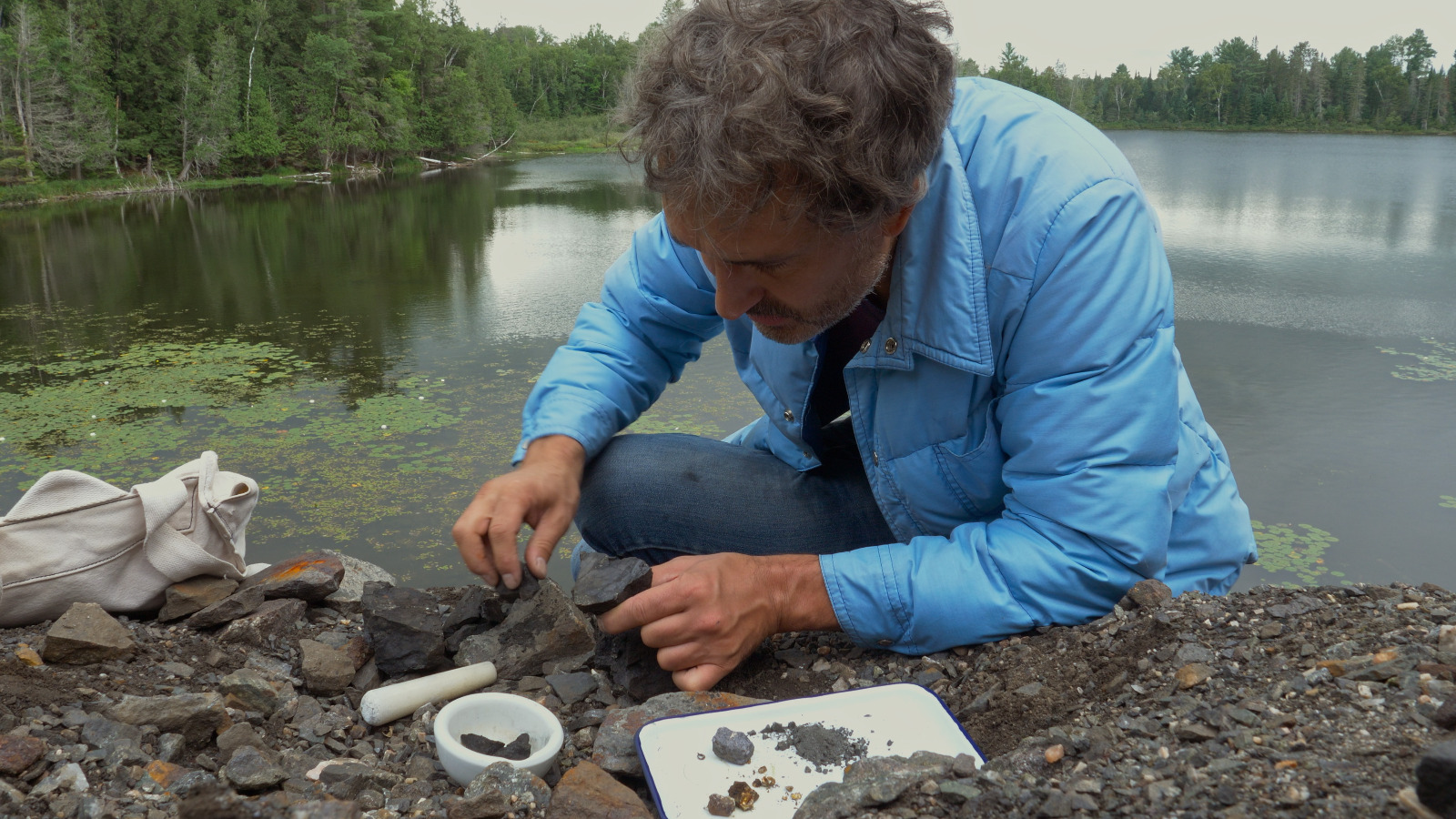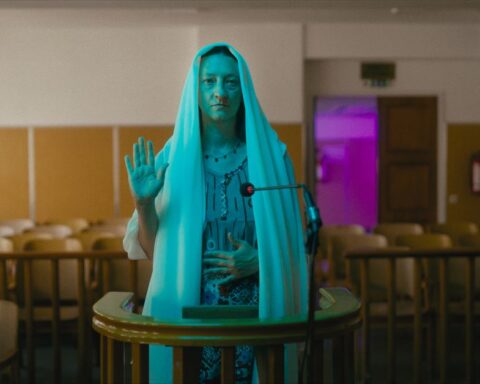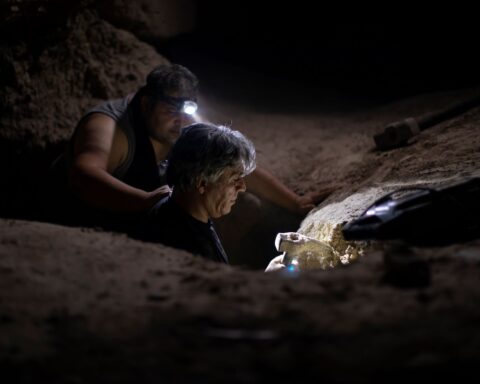Resources
(Canada, 99 min.)
Dir. Hubert Caron-Guay and Serge-Olivier Rondeau
Resources, directed by Hubert Caron-Guay and Serge-Olivier Rondeau, observes asylum seekers from Latin America as they pursue employment and the means to establish themselves as immigrants in Quebec. The timeline to be granted work permits, which most of them await throughout the course of the film, is varied and uncertain. Government agents encourage them to take French classes to bolster their applications and facilitate integration into Quebec’s workforce. Until they receive their paperwork and improve their French language skills, the asylum seekers have little sense of security both materially and socially. They’re in limbo.
Caron-Guay and Rondeau capture meetings between some asylum seekers and Spanish speaking employees of a community organization who offer them a glimmer of hope on the job front. The organization works as an intermediary between Olymel, Canada’s largest meat processing, marketing and producing company, and prospective employees. The company targets asylum seekers with the promise of full time legal work, the chance to move up in the company, housing, a sense of community, and a Spanish-speaking work environment, as many of their employees are from Latin America.
In these meetings, we also hear the personal stories of the asylum seekers. They share why they decided to come to Canada. Several of the men left their families in search of a better life for them. Several of the women survived kidnappings in their home countries, which pushed them to flee. As we listen to their stories, we are visually transported from time to time to Olymel, inside of the stables where the animals are kept. Close-up shots show a group of pigs grunting in their pens, black fur rises and falls as a cow breathes in and out, and two Spanish speaking employees support a cow as she goes through labour. Almost as soon as he can walk, the newborn calf is put in chains.
While the living conditions of the animals do not meet the standard of horror captured in other exposés on factory farming, the animals look healthy and reside in relatively clean conditions. The film impresses upon the viewer the sense of confinement in which these animals live. This is paralleled with frequent tight close-up shots of the asylum seekers whose lives are on course to converge with the animals, likely in the slaughterhouse.
While Olymel may very well fulfil the promises made to the asylum seekers, their representatives are dishonest on one front. The asylum seekers are continuously told “the choice is yours” whether they agree to work for Olymel or not, while simultaneously being made aware that, given their circumstances, other options are practically nil. Though the mediators give assurances that they have their best interests at heart, their arguably good intentions are eclipsed by the coercive and exploitative nature of the capitalist system. The slow, observational and meditative approach to the documentary adeptly depicts the banality of evil at work.




